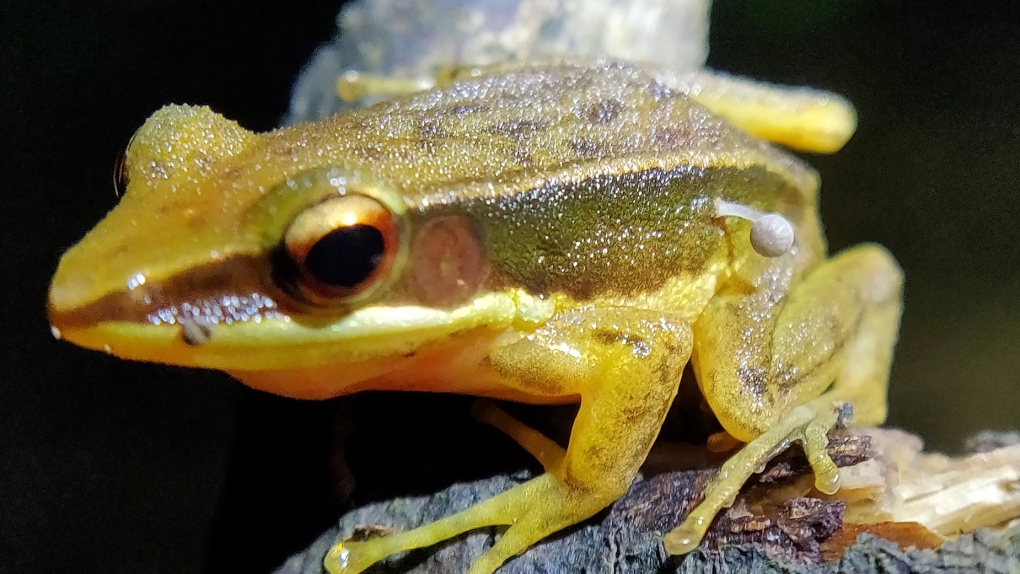It was a memorable day for many near the Bay of Fundy Monday when a Mola mola found its way to the Parrsboro Harbour in Nova Scotia.
The massive fish, more commonly known as an ocean sunfish, was spotted around 8 a.m. near the Aboiteau. The ocean sunfish is one of the largest bony fish in the world.
“They’re so-called sunfish because they bask at the water’s surface,” said Danielle Serratos, director and curator for the Fundy Geological Museum.
“They look kind of funky when they do that because they’re basically on their side, and so what people think of as their swimming fin is actually the dorsal or the top fin of their body, and when it’s flopping in the water, it can commonly be mistaken for a shark fin.”
The museum is located very close to where the fish showed up, and at first it seemed fine.
“Initially, a lot of us were kind of observing it. Myself and the museum staff and a bunch of fisher folk in the area were kind of keeping an eye on it, and we had some different opinions about what was going on,” Serratos said.
Eventually, Serratos said she hopped into her kayak to get a closer look to see if it was OK.
“By the time I got in the water, it was exhibiting some really distressing behavior. It kept circling in basically ever-tightening circles, which is not a normal behavior for really any organism of that size,” said Serratos. “I tried to keep my distance and stay close enough to help whenever it needed it.”
As the hours passed, the tide went out leaving the sunfish beached on a sandbar in the harbour.
“When that happened, we had a bunch of volunteers that basically just walked out and we got it back into kind of a deeper pool within the channel here and kept it with water flowing through its gills until the tide came back up, and then it was able to be released,” said Serratos.
She estimates the fish weighed at least 500 pounds.
“I want to say there was five adults that actually had to get it back into the water, and it’s really difficult to do that with sunfish,” said Serratos.
“You can’t actually lift it because you can’t really get your hands underneath the back half of the animal because those are joints. Those are cartilage areas that you just can’t lift from. So, it was an interesting excursion in terms of figuring out what is the anatomy of the animal and how do we safely move it, and do the least damage possible while still helping, right?”
Serratos spent hours in the water, as did a number of other volunteers throughout the day. The sunfish was able to be set free around 5 p.m.
“I really wanted to say thank you to our community members that just kind of leaped in and helped and took turns, and not just helped this poor sunfish that was in distress, but also helping each other,” said Serratos. “I was really fortunate to have that experience. I will never forget it.”
In Nova Scotia, Serratos said sunfish are more common around the north and south shores.
“I would say for something that large to be in the Parrsboro Harbour is incredibly rare,” she said.
She said an event like this is a good reminder of what to do if you find an animal in distress.
“We have a responsibility to help out only when necessary, and so that’s why it was really important to have that observation period before we actually step in and do something,” she said.



